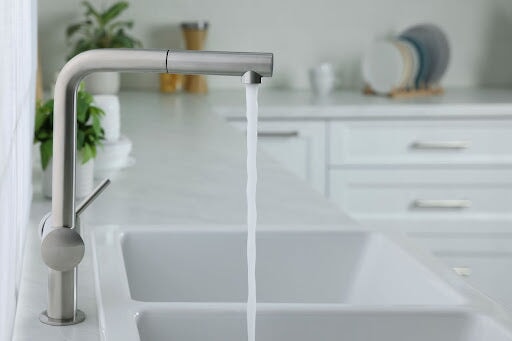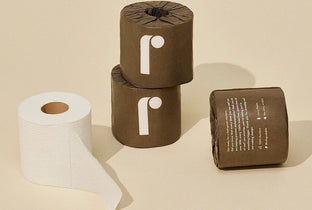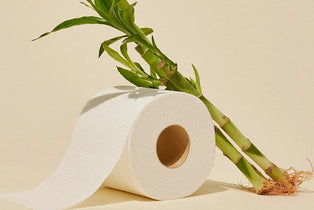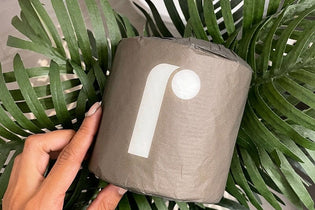
TLDR
Water sustains us in ways we often take for granted. It's easy to overlook the significance of every drop that flows from our faucets, but in a world facing growing water scarcity, it's imperative that we become conscious stewards of this precious resource. In this article, we'll explore practical steps on ways to reduce waste without sacrificing convenience or comfort. As we delve into these tips on how to save water, keep in mind that each small effort, when multiplied across communities and nations, culminates in a significant positive impact on our environment and our future generations. Let's embark on this journey together towards a more water-conscious world, by reducing this type of waste.
The Crucial Importance of Conserving Water
Before we dive into the practical tips, let's first understand why water conservation is of paramount importance. Every gallon we save today contributes to a more sustainable tomorrow. Excessive water usage not only strains local water supplies but can lead to environmental degradation and water shortages. It's a fact that many regions around the world are grappling with water scarcity, and the situation is only projected to worsen without concerted efforts.
By adopting water-saving practices, we not only alleviate the burden on our local ecosystems but also play a part in safeguarding aquatic habitats and preserving biodiversity. Moreover, reduced water consumption translates to lower energy requirements for water treatment and distribution, leading to a more energy-efficient and eco-friendly future. Embracing water conservation isn't just a choice; it's a responsibility we owe to our planet and future generations.
Everyday Habits: How We Waste Water Unknowingly
Imagine the collective impact of millions of people engaging in seemingly innocuous habits that waste water. Leaving the faucet running while brushing teeth, taking unnecessarily long showers, or ignoring leaky faucets—these are actions we can all modify to make a positive difference. It's time to break free from these habits and embrace a water-conscious lifestyle. Each drop we save reverberates across communities, conserving this vital resource for future generations. By recognizing the power of our individual actions, we become part of a global movement towards sustainable water use. Together, we can turn the tide on water wastage and ensure a thriving and vibrant planet for years to come.
Practical Tips to Minimize Faucet Water Waste
As we embark on the journey to reduce water waste, practical strategies play a pivotal role in achieving tangible results. These simple yet impactful tips not only contribute to a sustainable future but also lead to a more mindful and responsible use of this invaluable resource. When it comes to minimizing faucet water waste, small changes can yield substantial benefits. Here are nine actionable steps you can take:
- Install Low-Flow Fixtures: These devices adeptly reduce water flow without compromising pressure, maximizing the efficiency of every drop.
- Don't Let the Faucet Run: Whether it's during dishwashing or handwashing, remember to turn off the tap when water isn't actively in use. This minor adjustment translates to significant savings.
- Take Shorter Showers: Embrace the challenge of shortening your shower time. You'll be pleasantly surprised by the considerable amount of water you conserve by this water saving tip.
- Only Run Full Loads of Laundry and Dishes: Resist the temptation to run half-full loads. Wait until you have a full load before initiating the cycle to optimize water usage.
- Only Water Your Lawn When It Needs It: Overwatering can be as detrimental as underwatering. Understand your lawn's specific needs and adjust watering frequency accordingly.
- Consider Alternatives to Lawns: Traditional lawns, while aesthetically pleasing, can consume a significant amount of water. Exploring alternative landscaping options like xeriscaping, which involves selecting plants that require minimal water, can drastically reduce your water usage.
- Check for Leaks and Drips: Even a minor leak can lead to the wastage of hundreds of gallons of water. Regularly inspect faucets, pipes, and toilets for any signs of leakage.
- Don't Run the Hose While Washing Your Car: Instead of leaving the hose running, opt for a bucket of soapy water for washing, and reserve the hose for the rinsing stage.
- Collect and Use Rainwater: Installing a rain barrel provides an effective way to harness nature's bounty for watering plants. It's a straightforward yet eco-friendly practice.
- Invest in Water-Efficient Appliances: When the time comes to upgrade household appliances, prioritize those with high water efficiency ratings. These not only contribute to water conservation but also lead to long-term financial savings.
By integrating these tips into our daily routines, we not only play a role in safeguarding this precious resource but also set an example for others to follow. Together, we can create a more water-conscious and sustainable future for generations to come.
Educating and Spreading Awareness on Water Conservation
As we embark on this journey towards water conservation, let's not forget the power of spreading awareness. Share these tips with friends, family, and neighbors. Encourage your community to adopt water-saving practices. Education is the cornerstone of change, and together, we can make a substantial impact.
In the quest to reduce water waste, every action counts. By incorporating these practical tips into our daily routines, we not only contribute to a more sustainable future but also set an example for others to follow. With Reel Paper, you can do your part in working towards a sustainable future. Reel products like recycled paper towels and our bamboo toilet paper are a great way to make your home or living space eco-friendly. Remember, the power to conserve water lies in our hands. Let's rise to the challenge and be champions of water conservation.



0 comments